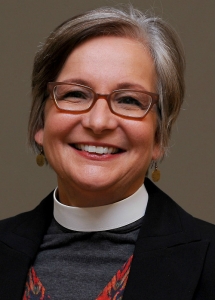 By Pr. Deb Stehlin
By Pr. Deb Stehlin
With the turn of the calendar page to a new year, I find myself getting pulled into the world’s way of measuring. Is the number on the bathroom scale getting lower? How many times did I work out this week? What are my big, fabulous goals for finding success in 2019?
It’s annual performance review season, too. We make a list of the goals that were accomplished and describe the impact our work has had. I’m not saying that we shouldn’t evaluate our effectiveness – after all, this gospel work is important to the wellbeing of our neighbors. I actually enjoy annual review conversations with our synod’s mission developers. (I hope they do, too.) We get to look back at the year and remember the good things and the hard things, as well as look for signs of the movement of the Holy Spirit.
But we follow Jesus, who spent a lot of time questioning our measuring systems. Jesus accomplished his goal (telos) on a cross, being killed for going against the things the empire measures and revealing the true heart of God.
ONE OF THE QUESTIONS I include in the mission developer review is “What is God teaching you?” Here’s how one developer answered: “God has been teaching me that faithfulness is a better metric than success.”
Another mission developer urged his faith community (which has a budget of about $80,000) to give 156 percent more mission support for the work of the wider church than they had initially pledged. He said, “If we’re not faithful with how we use our money, how can we ask our participants to be faithful?” For him and his leaders, faithfulness is more important to measure than the size of the ministry’s bank account.
“What if you stopped measuring the “success” of your congregation in the usual ways?”
These things inspire me. They inspire me to “let the same mind be in me that was in Christ Jesus” (Philippians 2:5) and question what we measure and how we measure it.
During the Minneapolis Area Synod’s Tool Kit for congregation leaders, I’m going lead a workshop called, “Five Marks of a Vital Congregation and Two Questions Not to Ask.” You should attend the Took Kit. It will be held February 23 at St. Stephen in Bloomington.
What if you stopped measuring the “success” of your congregation in the usual ways and asked instead, “How can we be faithful? What tangible things would we be doing to demonstrate our faithfulness?” I hope to see you there.
